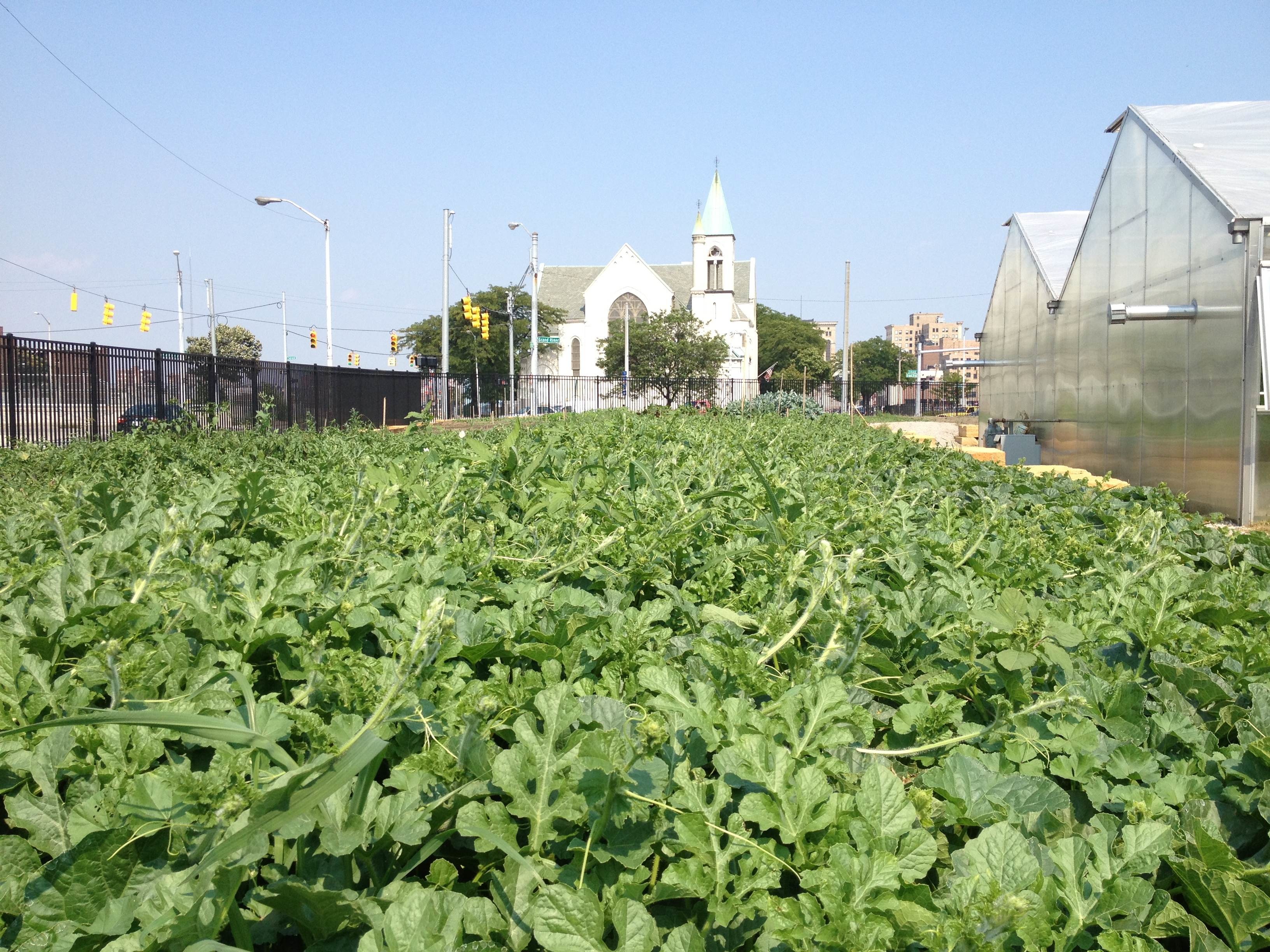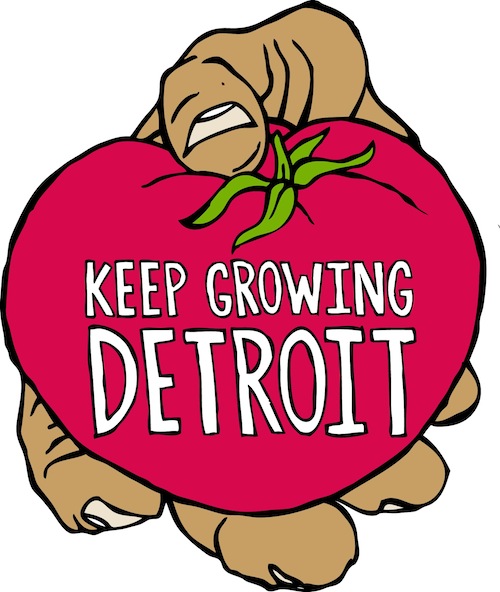The organization is making great strides in its mission to create a food sovereign Detroit, while harvesting community spirit and new income sources for Detroiters.

As we prepare for Thanksgiving, it’s a great time to check back with Keep Growing Detroit, an urban gardening organization I first reported on back in May.
Keep Growing Detroit was established this year as an offshoot of The Greening of Detroit. This move sharpened the focus on its primary mission: to create a food sovereign Detroit, where a majority of the produce eaten in Detroit is grown right in the city.
The organization gives individuals and communities in Detroit, Highland Park and Hamtramck the resources to create and tend community-wide gardens that turn neighborhoods from “trash-strewn into a joyful place,” says Co-Director Ashley Atkinson.
It’s clear the volunteers involved in this effort share Atkinson’s enthusiasm. Just look at the hours 15,000 Detroiters spent tending just under 1,300 gardens this year, she says.
Gardeners put in nearly 2,200 hours of sweat equity between February and October. Based on the current value of a volunteer in the state of Michigan, that’s about $45,000 worth of sweat equity. Because our volunteers stepped up, we passed the test of resiliency during a year when we’re still building our infrastructure.
What’s more, non-gardeners volunteered 1,532 hours, mostly high school students and corporate groups doing educational and charitable work, respectively. They helped with transplant production in Keep Growing Detroit’s greenhouse, packed seeds and helped with day-to-day management of the Detroit-based farm that serves many of the organization’s programmatic needs.
In total, volunteers put in 3,700 sweat equity hours this season, Atkinson says.
When the resources weren’t there the way they were in previous years, the community really carried on. People are still invested. They feel like it’s their work. They’re committed on a whole different level. They pick up the ball and run with it.
This is especially important considering that growing produce to sell in farmers markets has become a source of income — if not a new career — for many of Keep Growing Detroit’s gardeners. The organization helps residents start family and community gardens, which mostly feed families and neighborhoods. But 51 percent or more of the produce grown is from Keep Growing Detroit’s market gardens, which send their fruits and vegetables to local farmers markets and are essential to the organization’s goal, Atkinson says.
Just like all of our gardens, market gardens are a beautifying, stabilizing influence in our neighborhoods. But the production-oriented market gardens really fulfill our mission of a food-sovereign city: grown by Detroiters for Detroiters. We help family gardeners move into community gardens and then market gardens that benefit a whole different scale of the city. The market gardeners are supplementing their income or even starting their own businesses — bringing in a total of $45,000 for taking their produce to market this season, not including November.
 Because these gardeners are forging new livelihoods out of gardening, it’s important they be able to keep their land. Until now, just over half of Keep Growing Detroit’s community and market gardens were land insecure. Working closely with the City of Detroit and stakeholders, Keep Growing Detroit helped make it possible for dozens and dozens of growers to start the process of buying the land they tend.
Because these gardeners are forging new livelihoods out of gardening, it’s important they be able to keep their land. Until now, just over half of Keep Growing Detroit’s community and market gardens were land insecure. Working closely with the City of Detroit and stakeholders, Keep Growing Detroit helped make it possible for dozens and dozens of growers to start the process of buying the land they tend.
Keep Growing Detroit is already getting things in place for next year’s growing season on what Atkinson describes as a “very coordinated scale”: creating garden plans that will ensure diverse crops, developing market plans, strategizing how to recruit and train a larger labor force and working on two new greenhouses to produce seedlings and transplants.
Atkinson hopes to enlist even more volunteers and groups to partner with in Detroit, Highland Park and Hamtramck in 2014. To find out more or volunteer, email keepgrowingdetroit@gmail.com, call (313) 757-2635 or visit Keep Growing Detroit’s website.



